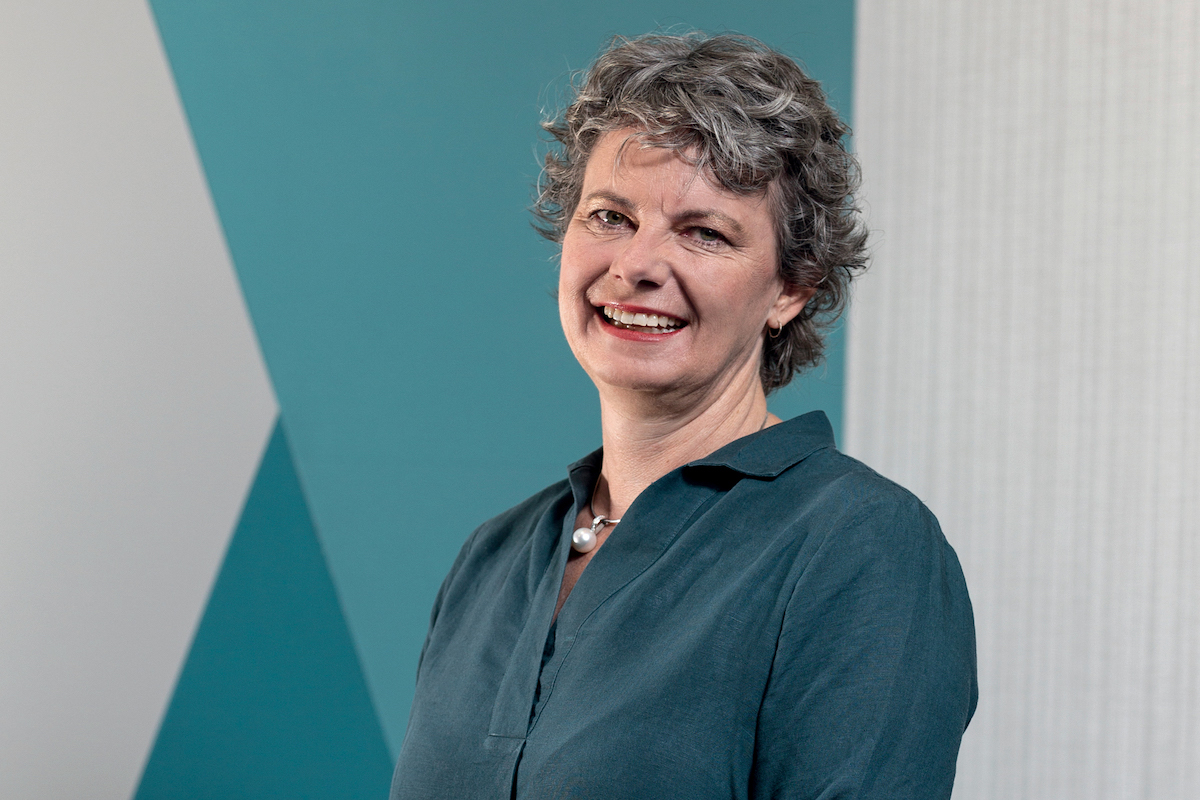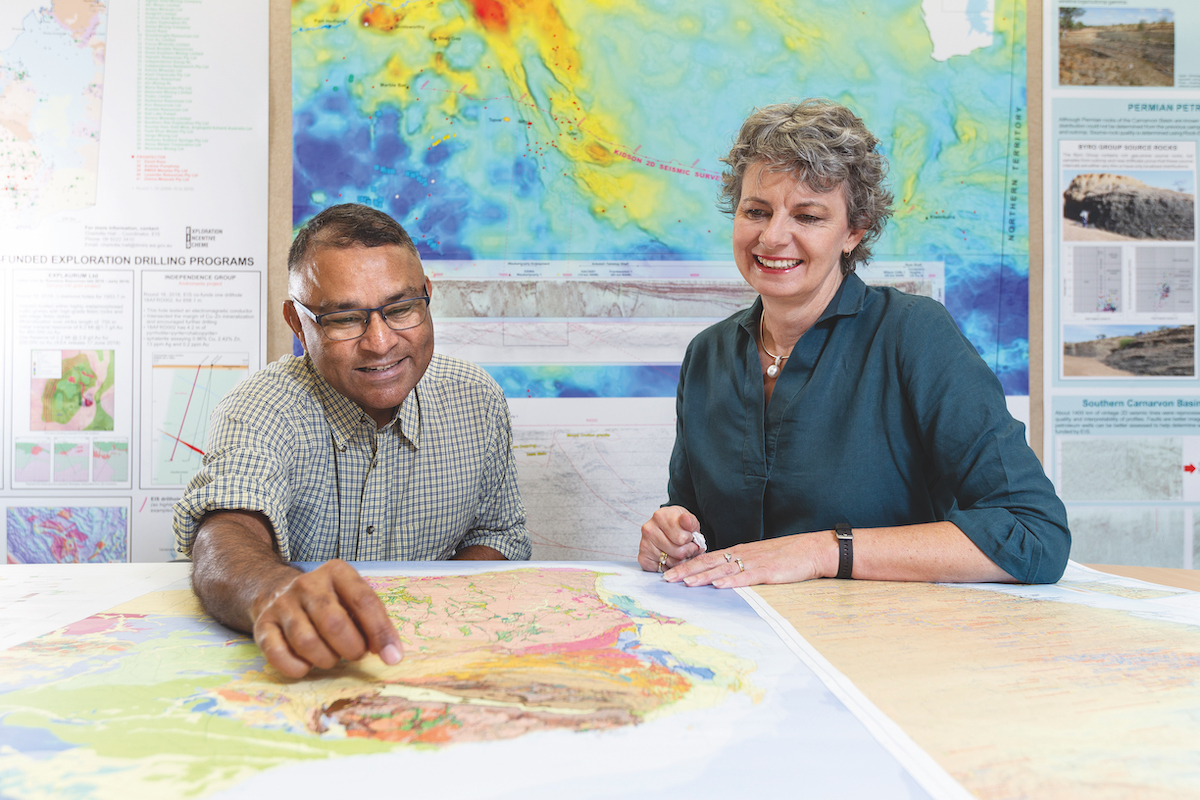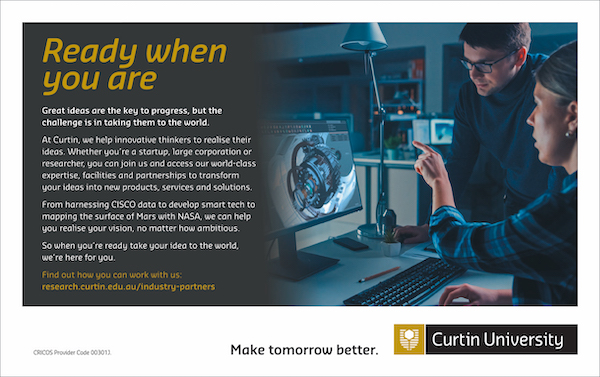Hailed as the ‘saviour’ of the Australian economy, Western Australia’s mining industry has long been considered the backbone of the country’s financial stability, contributing an estimated 15% to GDP and 72% of Australia’s exports in 2018.

Nicole Roocke is CEO of the Mineral Research Institute of Western Australia (MRIWA), an organisation charged with bringing together the state government, research community and mining sector to collaborate on projects benefiting both the industry and the state.
With 16 years’ experience in the mining sector, Nicole is highly regarded and respected in the resources industry – not only does she have significant Australian mining industry knowledge, but she understands the challenges the sector faces. Nicole was appointed as CEO in 2018 after 15 years with the Chamber of Minerals and Energy of Western Australia.
The MRIWA (or more affectionately known as the Institute) is an independent statutory authority of the Government of Western Australia, charged with promoting and fostering minerals research and the development needs of the state’s minerals industry to advance WA and facilitate economic growth.
“Our remit is fantastic. We have the opportunity to be involved in a host of research projects across the mining value chain,” says Nicole. “There’s no other organisation like the Institute in any other jurisdiction demonstrating the WA state government’s support for the mining sector.”
The Institute is tasked with undertaking, procuring and managing mineral research projects and providing financial assistance and grants. “For every dollar we invest in research, there needs to be aligned industry partners who support and fund that research,” Nicole explains.
The Institute is also responsible for sharing the knowledge gathered through research and promoting public awareness and interest in minerals research. “Our role is to champion research results to a broader global audience,” she suggests. “This knowledge transfer highlights the research capabilities that exist in WA and ensures research outcomes are used effectively and adopted widely.”
“Our role is to champion research results to a broader global audience.”
In 2019, consulting group ACIL Allen released its findings on the economic impact of the investments MRIWA has made over the past five years. “Along with the non-tangible impacts of job and knowledge creation, the review identified that for every dollar the government invested, MRIWA delivered a three-dollar return,” she says.
As expected from a government authority of this stature, MRIWA’s grant process is robust. “My team works with the researchers to ensure their proposals are well developed and meet the objectives of the Institute,” Nicole explains. “Decisions are based on the technical merit and strategic importance of the projects to WA.”
The three pillars
For Nicole, MRIWA’s strategic focus is evolving. She believes the wealth of research findings created through the Institute needs to be shared meaningfully and translated into powerful tools that will not only contribute to the mining industry but to the state as a whole.
“The strength of our brand comes from three main pillars we work within,” Nicole explains. “First is having an impactful research program so we’ll be considered a key partner in research. Second, we’re providing collaborative research leadership and bringing together the right parties to find the right solutions to problems in WA’s mining industry,” she says. “Researchers need to understand what the industry needs from them. The challenge is getting the mining companies to see the value in collaborating.

“Invariably, once we get the right stakeholders around the table, the collective knowledge of the research community and industry means we can find solutions to technical issues that the mining sector can’t solve by itself.”
Lastly, Nicole sees a shift happening. “We’re building on our strong foundation as a grants administration organisation. We’re now looking at how we can promote the research findings to the right audiences and enable mining companies to adopt and implement these findings from that research.”
Into the future
MRIWA’s recently revised research priority plan (RPP) identifies the mining industry’s key research needs. “As a sector, there is a need for us to better utilise data to make more informed decisions,” suggests Nicole. “New areas included in our RPP, where we may seek to work with the industry and researchers, include the development of communications and positioning technologies, better energy utilisation and mine remediation and closure.”
“There is a need for us to better utilise data to make more informed decisions.”
As WA has the raw commodities required for battery production, the state government has a Future Battery Industry Strategy. Key to this is a significant investment via MRIWA into the Future Battery Industry Cooperative Research Centre (FBI CRC). The FBI CRC is seeking to improve the extraction of battery minerals and enable Australia to become a major supplier of battery materials into global markets. “It’s really exciting to be leading the state government’s input in relation to research needs to help us build a future battery industry in WA,” Nicole says.
The facilitation factor
For Nicole, her style of management is very collaborative. “I see myself as a facilitator, bringing together the right people to work on specific projects by identifying their strengths and putting together the ideal team to get the best outcome. I certainly don’t have the in-depth technical knowledge needed to undertake the research projects,” Nicole laughs.
“But it’s about making sure we have the best people on board. My role is to determine how we get the right people together and provide support so they can achieve their maximum potential and do the work that needs to be done.
“There are many pieces to the jigsaw puzzle that need to be pieced together, including different parts of the industry and researchers across different disciplines,” she says. “We need to make sure we are not operating in silos, and for each project we need to look through the lens of data science, mineral economics, engineering and metallurgy perspectives, all the while making sure we consider the skills our workforce needs to have to be able to engage with these new technologies. Working with major partners like Curtin University enables us to bring this multidisciplinary approach to the table.”
Two PhD research scholarships are offered annually by the Institute, including a research scholarship for women. “It’s fantastic to be able to champion our future leaders and provide this opportunity,” says Nicole. “There’s an amazing array of career opportunities for women in the mining sector, and I’d encourage every schoolgirl to explore how they can use their skills and experiences in this industry.
“I love seeing the innovation and technological advances in the research community and mining industry. There’s some incredibly advanced thinking happening around minimising negative impacts of mining and maximising the positive. It’s fascinating to uncover what’s going on in this state and champion the excellent capabilities here in WA that largely fly under the radar.”
Proudly supported by:



